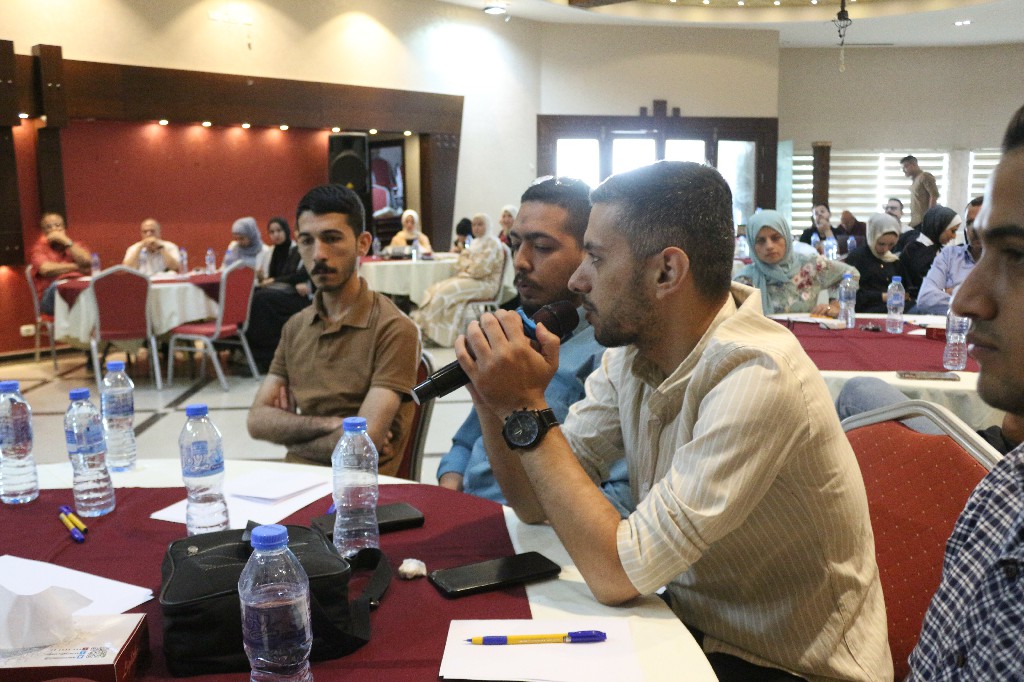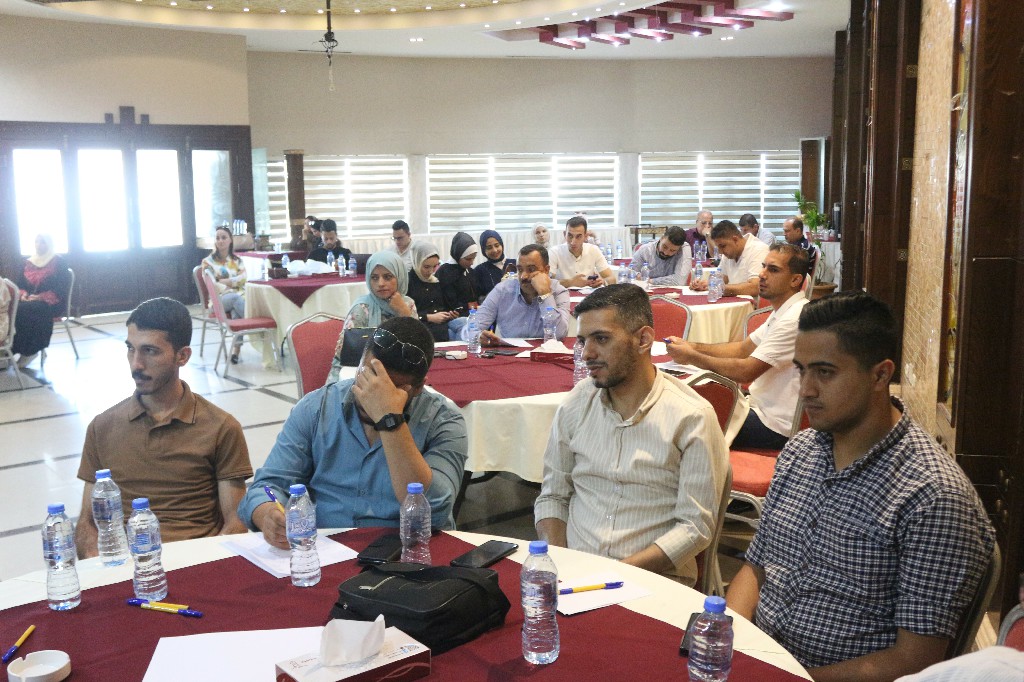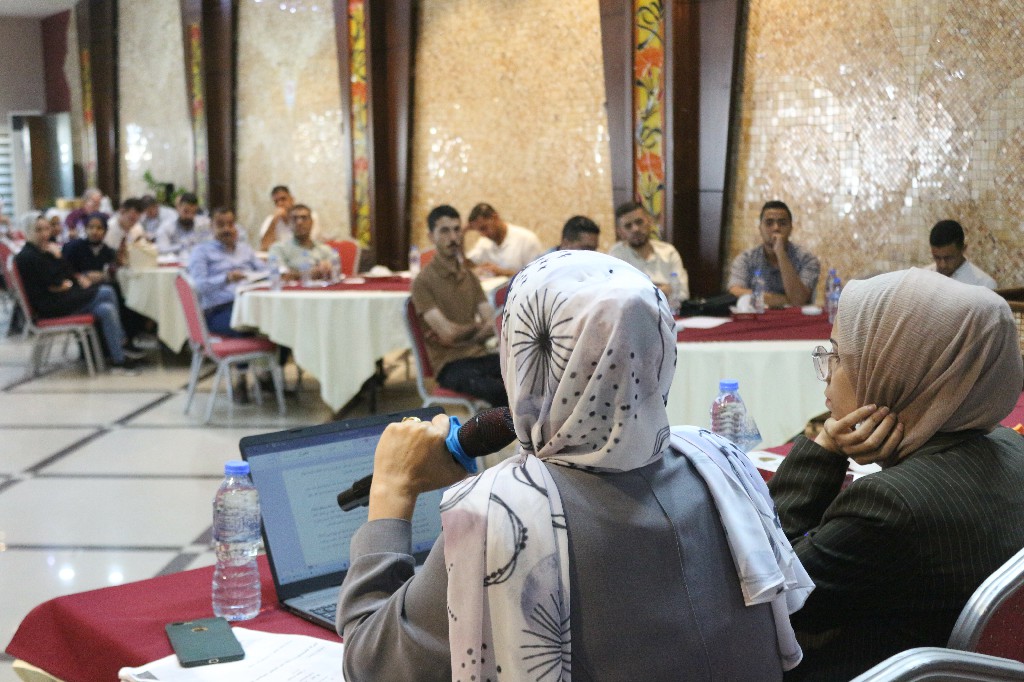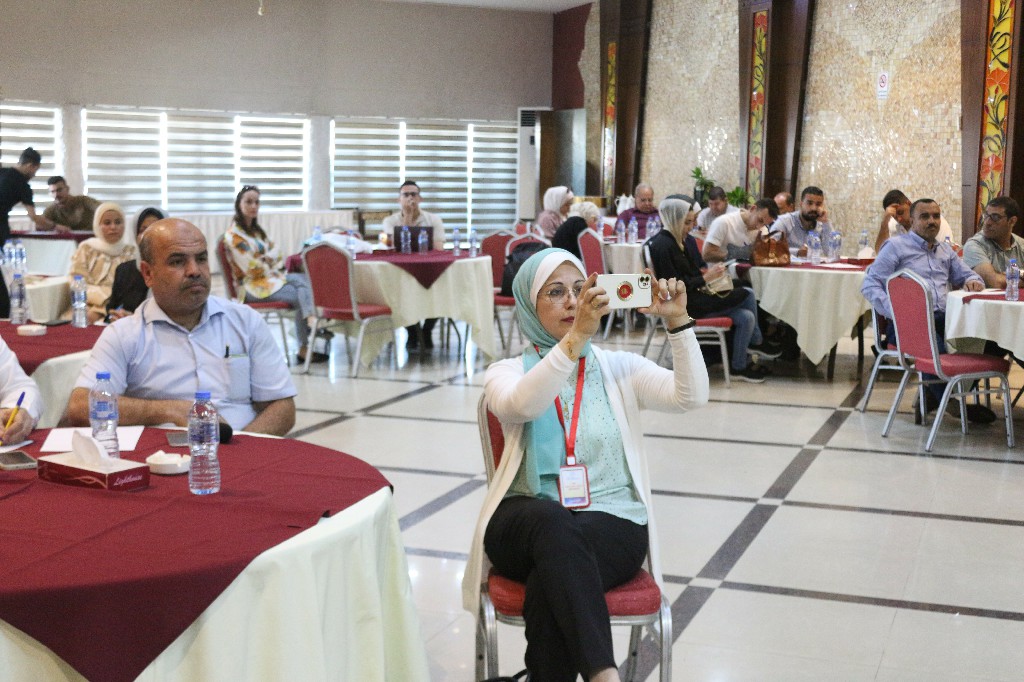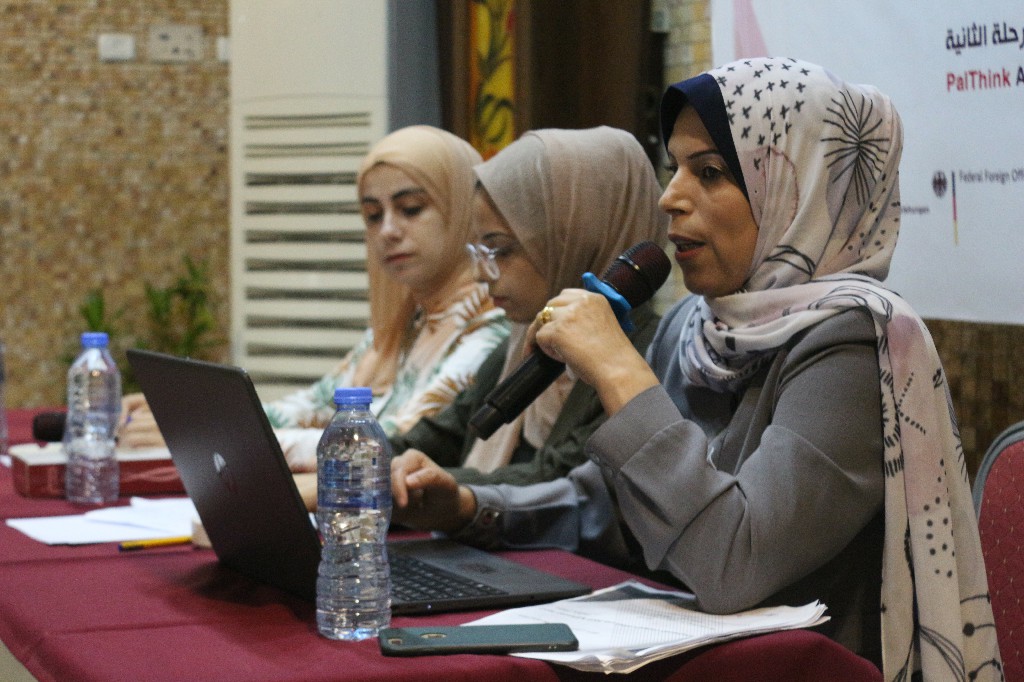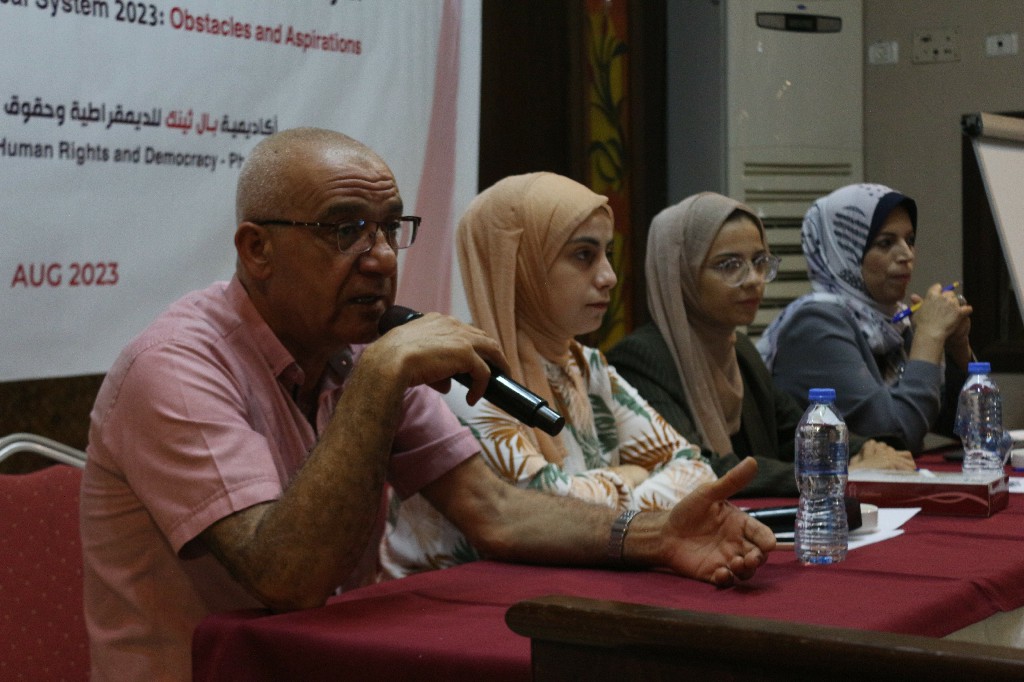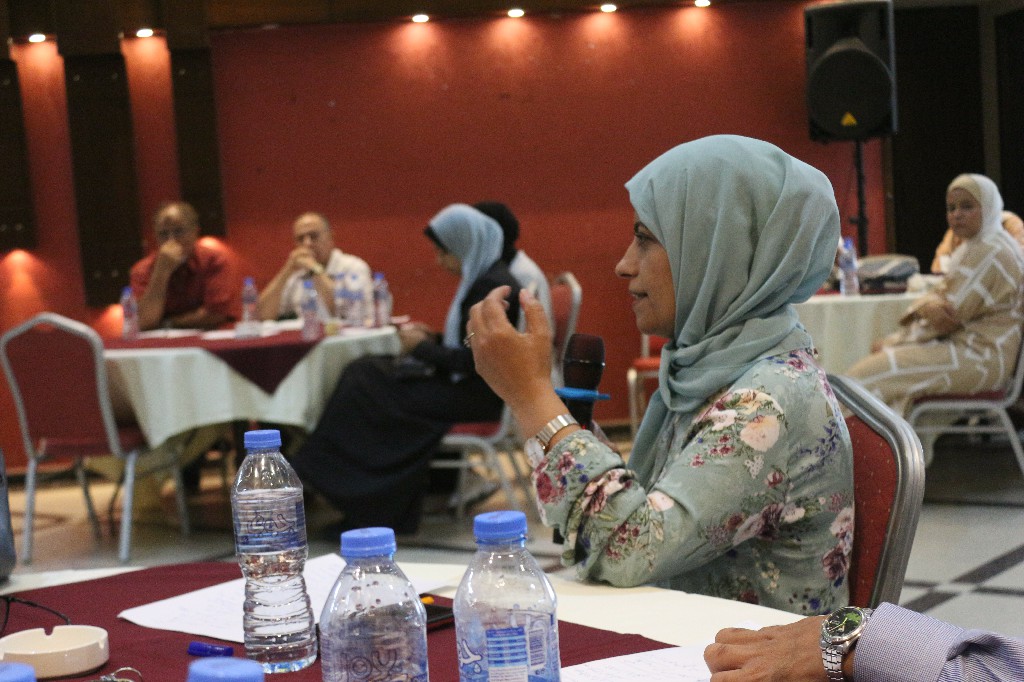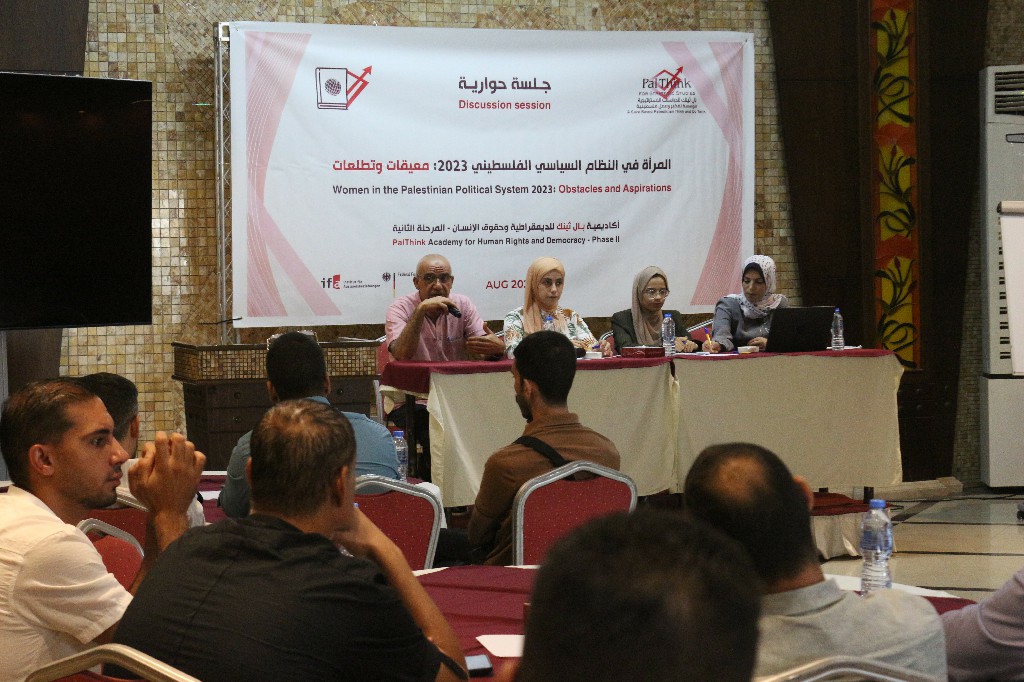
Gaza – PalThink for Strategic Studies has held a dialogue session to present and discuss a research paper titled “Women in the Palestinian Political System 2023: Obstacles and Aspirations,” authored by researchers Dr. Ilham Shammali and Dr. Yahya Qaoud, along with young researchers Noor Nassar and Mai Afifa.
The session was part of the second phase of the “PalThink Academy for Democracy and Human Rights” project, supported by the German Federal Foreign Office’s funds by ifa’s Funding Programme zivik.
The session was opened by PalThink’s director, Omar Shaaban, who welcomed the attendees and emphasized that “developing the capacities of youth and local talents is one of the key pillars of PalThink’s development-oriented work.
“PalThink provides young people with opportunities to work and train in producing research and policy papers, which can prepare them to become future researchers,” he said.
Dr. Shammali stated, “The paper seeks to provide an analysis of the situation of Palestinian women in 2023, by examining their progress, positioning, setbacks in politics, economics, and society. It also looks at the most important related legislations that are supposed to enhance the status of Palestinian women instead of hindering or marginalizing them.”
She pointed out that “Palestinian women have played a significant role in political, social, economic, and cultural realms, with their prominent role throughout history in the Palestinian struggle against Israeli occupation. Women’s participation in political work dates back to 1929, and since then, women have been actively engaged in various political activities.”
She noted, “Palestinian women face challenges in all areas due to radical discourse, which seeks to diminish their importance and presence in the political arena.”
Young researcher, Nassar, continued to discuss the status of women in Palestinian laws and regulations, highlighting some policy recommendations at various levels, including governmental, institutional, and party levels.
She added, “Not all Palestinian laws have been aligned with the international agreements and conventions signed, which poses a major obstacle to women’s political participation. Additionally, the paralysis of the Palestinian Legislative Council since 2007 and the absence of women’s representation in law formulation have weakened the legal framework.”
She pointed out, “There are three main challenges hindering women’s progress in Palestinian public political life. The first challenge is the Israeli occupation, which obstructs the development of Palestinian society. The second challenge lies in the effort to end the internal division, which has created confusion in Palestinian priorities and has become a hindrance to efforts and capabilities.”
“The third challenge is disagreement over women’s rights, which is one of the main obstacles to women’s development, participation, and mobilization in the primary struggle to defend the rights of the people,” she said.
The presentation of the paper was followed by a rich dialogue in which the attendees participated, addressing several issues related to the status of women, including women’s self-mobilization for their rights, education and awareness in schools about women’s rights, procedural obstacles facing women in gaining their rights, women’s participation in reforming the Palestinian political system, the impact of the absence of a political system and internal division on women’s rights, and the treatment of political parties toward women.


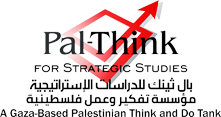
 Home
Home Literature
Literature Studies
Studies Reports
Reports Book
Book International Conventions
International Conventions Links
Links Academy News
Academy News Opportunities
Opportunities Networking
Networking Your opinion
Your opinion